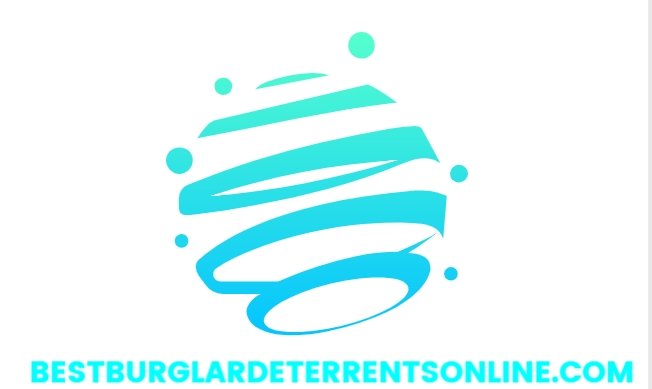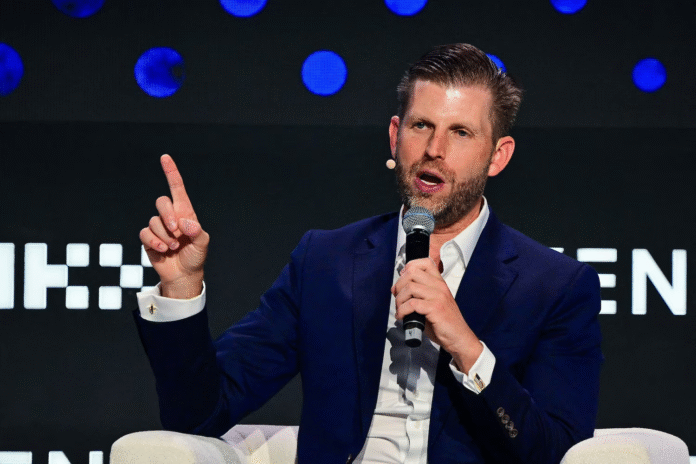
In a move that has caught both political and economic observers off guard, a state-backed investment firm from Abu Dhabi has committed to a $2 billion deal with the Trump family’s cryptocurrency venture, World Liberty Financial. This agreement marks a significant step forward for the Trump-backed firm and underscores the growing intersection between global finance and political influence as the 2024 election cycle looms large.
At the heart of this deal is World Liberty Financial’s stablecoin, USD1, a digital asset designed to maintain a stable value, making it a crucial player in the transaction with crypto exchange Binance. Zach Witkoff, co-founder of World Liberty Financial, confirmed that USD1 would serve as the official stablecoin for closing the Emirati-backed MGX’s investment in Binance. This announcement was made during a crypto convention in Dubai, where Witkoff appeared alongside Eric Trump, the former president’s son.
“We are excited to announce today that USD1 has been selected as the official stablecoin to close MGX’s $2 billion investment in Binance,” Witkoff shared in a video posted on X. He expressed gratitude toward both MGX and Binance for their trust in the crypto venture and hinted that this deal might just be the beginning of larger ambitions. The news comes just months after the Trump family’s public entry into the cryptocurrency world, adding another layer of complexity to their already controversial business dealings.
Trump Family’s Crypto Business: A Growing Venture
This recent partnership places the Trump family’s venture in the global spotlight. Despite initial skepticism and the former president’s earlier dismissal of cryptocurrencies as a “scam,” Trump and his sons, Eric and Don Jr., have now fully embraced the digital currency market. World Liberty Financial was launched last year, although details on its business model and operations remain sparse. Still, this major investment deal with the Emirati firm signals that the Trump family is aiming to build something far more substantial than initially thought.
At the heart of the venture is USD1, World Liberty’s stablecoin, which is backed “one-to-one by short-term treasuries and cash equivalents.” The goal is for USD1 to be integrated into traditional retail systems, facilitating everyday transactions—perhaps even at places like the Four Seasons in Abu Dhabi or a deli in New York City. The ambition is clear: to bring cryptocurrency into the mainstream in ways that have not yet been realized.
During the Dubai crypto convention, Eric Trump shared his enthusiasm for the project while joking with Witkoff about using the Four Seasons as a prime example, suggesting the Trump Tower could also benefit from such integration. Despite the lightheartedness, the conversation underscored the serious ambition behind the Trump family’s involvement in the crypto space.
Foreign Investment Raises Ethical Questions
However, the timing and scope of this venture raise important ethical concerns. Cryptocurrency and ethics experts have questioned whether foreign investors—particularly those from regions with strategic geopolitical interests—could be using investments like these to gain favor with the Trump family, which has maintained business interests globally, including in the UAE. Critics argue that the Trump administration’s regulatory influence over cryptocurrencies creates a potential conflict of interest, particularly when the former president’s family stands to benefit from such investments.
Danielle Brian, executive director of the Project on Government Oversight, highlighted the loopholes in U.S. ethics laws that allow a sitting president to maintain financial ties to businesses. She noted that these issues were magnified in this new venture, suggesting that the Trump administration’s lack of clear financial disclosures raised more questions than answers. “The president is taking the weakness in our current ethics laws and extending it to a whole new level,” Brian stated, alluding to potential complications in the Trump family’s involvement with cryptocurrencies while he held office.
Eric Trump has maintained that his father’s assets are in a trust managed by him and his siblings, thus ensuring no conflicts of interest. Yet, with the Trumps’ business dealings expanding into cryptocurrency—an industry largely unregulated in the U.S.—questions about transparency and the potential for ethical lapses remain unanswered.
The Crypto Landscape: Ambitious Goals and Controversial Backers
Despite the controversies surrounding the Trump family’s crypto initiative, the crypto world has been no stranger to high-profile and sometimes contentious investments. The partnership with Tron founder Justin Sun—who made a sizable investment in World Liberty Financial in the days before Trump’s inauguration—has only added to the intrigue. Sun, a Chinese-born entrepreneur with a checkered past in regulatory disputes, purchased $75 million worth of WLFI coins just before Trump took office. Moreover, the Trump administration had been accused of intervening in cases involving Sun, further complicating the narrative surrounding the Trump family’s crypto venture.
In an interesting turn, Witkoff announced that World Liberty Financial’s USD1 coin would also integrate with Tron’s network, making it a significant player in the wider cryptocurrency ecosystem. This deal promises to mint vast amounts of USD1 tokens, potentially reaching billions of dollars in circulation, although the details remain murky.
Global Ambitions and Future Prospects
As the Trump family ventures further into the crypto space, the implications extend beyond just business. They are now entrenched in an international market where political influence, financial power, and technology converge. The support from an Emirati-backed firm further emphasizes the global stakes of this venture, highlighting how cryptocurrency is becoming a tool not only for investors but also for shaping political dynamics.
The Trump family’s crypto ambitions also signal a broader shift in the traditional financial landscape, where digital currencies are increasingly being integrated into global commerce. However, this move also underscores the importance of clear ethical guidelines and transparency, especially when political figures remain involved in such high-stakes ventures. With their growing portfolio of crypto investments, the Trump family’s actions in this space will likely continue to raise questions for years to come. As for World Liberty Financial, only time will tell if it can navigate the complex intersection of cryptocurrency, global investment, and U.S. political ethics.
4o mini


